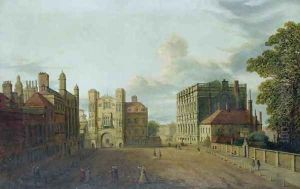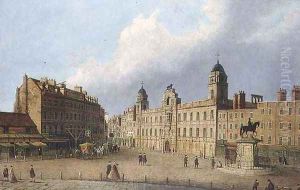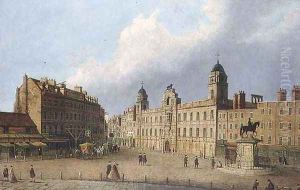Sir John Dean Paul Paintings
Sir John Dean Paul, born in 1775, was a British baronet and artist, known primarily for his talents as an amateur painter. His life spanned across a period of significant social and political change in Britain, coinciding with events like the American War of Independence, the French Revolution, and the Industrial Revolution. Paul was not a professional artist, but his works have drawn interest for their historical value and their representation of the tastes and interests of the British upper classes during his lifetime.
Paul was born into privilege as part of the British aristocracy. His title, the baronetcy of Rodborough, was created for his family in 1762, which provided him with a status and lifestyle that allowed him the leisure to pursue artistic endeavors. As an amateur artist, he was part of a tradition of the gentry and nobility engaging in the arts for personal fulfillment rather than for professional gain.
His artistic output included a variety of subjects, from landscapes to depictions of family members and friends. His works were characterized by a sense of immediacy and personal insight, reflecting the amateur's freedom from commercial pressures. While he did not seek to change the art world or develop a new style, his paintings are valuable for their depiction of the leisure activities and private lives of the British elite.
Despite his standing and artistic pursuits, Sir John Dean Paul is perhaps more infamously remembered for his involvement in a banking scandal. He was a partner in the London private bank Strahan, Paul & Bates, which collapsed in 1855, three years after his death. The bank's failure was one of the most sensational of the Victorian era, leading to a significant financial scandal. His two sons were imprisoned for their roles in the bank's fraudulent activities, which involved the misuse of customer funds.
Sir John Dean Paul passed away in 1852. His legacy as an artist is overshadowed by the scandal associated with his name, but his paintings remain as a testament to his skills and interests, offering insights into the life of a gentleman of his era. It should be noted that his death precedes the bank scandal, and thus he was not personally implicated in the illegal activities that brought disgrace upon his family.


